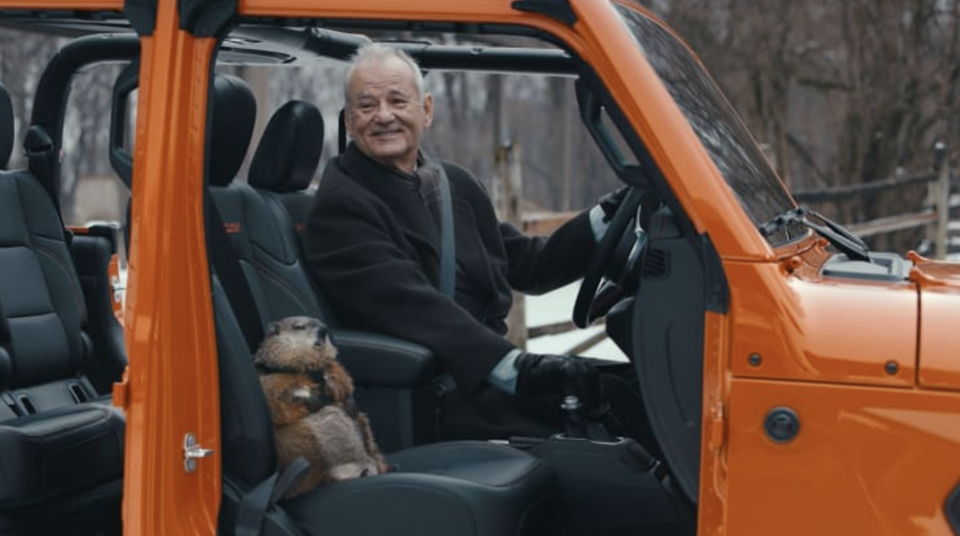Despite a very cute Jeep commercial featured today in the 2020 Super Bowl with fan favorite Bill Murray, we can’t ignore the glaring need for the auto industry to change with the times.
Although people have been buying cars for decades, the manufacturing and sales processes haven’t changed very much. As nearly every other industry welcomes change and innovation, the auto industry remains largely untouched, much to the chagrin of consumers. It’s just part of the reason car sales continue to slump, except for Tesla that continues to post solid numbers—Tesla surpassed the $100 billion market value for the first time. I admit I am a new Tesla customer—although I have been talking about Tesla and Elon Musk in my speeches for years. Now I fully understand why the company is so valuable. I am astounded by the superior customer and user experience offered by the company. The Tesla user and driving experience blows everyone else out of the water including Mercedes which is what I drove for the last six years. I also enjoy a more guilt-free ride in my Model 3 as I know the car is better for the environment. If the traditional auto industry wants to keep its customers, it needs to make some major changes, starting in these three areas:
Greater Push For Sustainability
It’s no secret that modern customers crave sustainability and want to do business with brands that offer environmentally friendly products. This is especially important for younger generations, as 93% of Gen-Z believe brands have an obligation to take a stand on environmental issues. Across all consumers, 88% want brands to help them make a difference with more sustainable options. But in most cases, car companies aren’t supporting sustainable change. Road transport accounts for 17% of all greenhouse emissions and is a major contributor to environmental issues and climate change. Many automotive companies are pushing for a return to 1970s-era emission standards, when they really should be advocating for forward-thinking changes that protect the environment.
By 2030, 30% of car sales are expected to be zero-emissions or hybrid. 40 million Americans say they will consider a battery-electric vehicle for their next car. As the technology improves and the price of hybrid and electric vehicles continues to decrease, they will likely become more prevalent on the roads. Not every car needs to be completely electric, but customers want to know their cars are doing the best they can for the environment. Two-thirds of Americans support stricter car emissions standards and want businesses and the government to do their part to fight climate change.
Improved Car-Buying Process
Buying a car is notoriously time-consuming and stressful. The majority of Americans find buying a car more stressful than getting married or going on a first date, and 33% of people would rather do their taxes or sit in the middle seat of an airplane than buy a new car. But even knowing this, the big car companies largely aren’t doing anything to update the process. Customers still come in, talk to a salesperson, take the car on a test drive and then wait, negotiate and sign their lives away, all while not being sure if they are really getting a good deal.
Companies that have innovated the car-buying process have had great success, and the large companies need to follow in their footsteps if they want to keep their customers. Carvana reinvented the car shopping process by creating interactive web-based shopping. Customers can search through thousands of cars and then have their dream car delivered straight to their door or to one of the company’s car vending machines. Similarly, Porsche recently re-vamped its car buying experience to launch an online browsing platform. With a personalized approach to car buying both online and in the dealership, it’s no surprise Porsche tops the list of best sales experiences. In an age where companies in all industries are competing primarily on experience, most automotive companies need to re-evaluate and update their customer experiences.
Innovative Business Models
As fewer consumers are looking to actually purchase a car, the auto industry needs to evolve to match their preferences. A 2016 survey found that 82% of auto industry executives expect a business model disruption in the next five years—that time is coming quickly. Younger generations tend to prefer access to ownership. Especially for those in urban areas, the cost and maintenance of owning a car doesn’t compare to the convenience and cost-savings of using on-demand or flex cars when needed. Some car companies, including BMW and GM, have launched car-sharing programs that are a step in the right direction. However, most of these new initiatives have come out long after more established players, like Uber, Lyft and Car2Go, have been in the market. To truly disrupt the industry and provide customers with what they want, car companies need to be forward-thinking, daring and innovative.
Companies also need to adjust their offerings to match what customers want. Busy, connected customers want things to simplify their lives, like connected cars or driver-assist features. A number of companies are working towards autonomous cars. While many consumers are still on the fence on if they would actually use the technology, the innovation has them looking in the right direction.
The automotive industry has huge resources at its fingertips, including a vast array of new technology. In order to best leverage these new offerings, the industry needs to make major changes to its sustainability, customer experience and business models. Without these overdue changes, the auto industry will continue to lose customers.
Blake Morgan is a customer experience futurist, keynote speaker and the author of the bestselling book The Customer Of The Future. Sign up for her weekly newsletter here.

